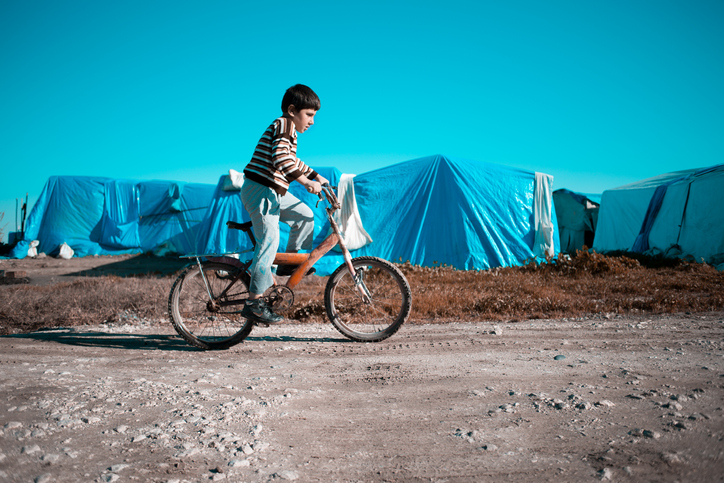
Télécoms Sans Frontières (TSF), a NGO focused on emergency-response technologies, has developed a system that allows children to continue learning from home after the closure of two of their supported learning centers in Gaziantep, Turkey. The centers focused on Mathematics, Arabic (literacy), and English, and offered resources such as tablets for the children. The mLearning project is not limited to the provision of resources. The learning process is also specifically adapted and takes into account not only the possible psychological difficulties encountered by the children, but also the disparities of level existing between the children, irrespective their age.
TSF has now switched to distance learning, in which their local team is in contact with the parents of the children through the use of WhatsApp groups and an online platform specially developed by our technicians for this purpose. This allows students to continue learning in Arabic, Mathematics and Computer Science. Students learn how to send emails, do online research, compare the information they found and assess the reliability of sources. The local TSF teacher staff send resources, exercises and video tutorials to the children every day, which ensures constant contact with them and allows them to regularly give them feedback on their work.
In this disadvantaged context, some families do not have access to the Internet or do not have smartphones or computers at home. In order to not disadvantage those who do not have these resources and make up for it, TSF provides free Internet data packages and tablets so that everyone can continue their distance learning. The adaptation to distance learning is a success: 80% of the pupils are active and the parents are satisfied with the process.
Since 2013, our educational program for Syrian refugee children in Gaziantep allows them to learn several subjects interactively, in a safe and caring environment. The COVID-19 situation adds to the difficulties of Syrian refugee families in Gaziantep; for children, the risk is to undergo an additional suspension of their school career. This distance education program keeps the children connected, and helps them get through these trying weeks with regular activity proposals to reduce the impact of this new crisis on their education.






